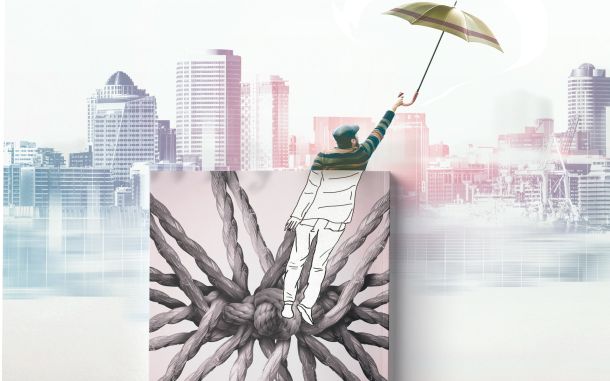Editorial (Issue 144): The Beauty of Balance

There are two primary theories regarding the universe and how all matter is maintained; one is that it exists in a kind of “organized chaos” where things happen both randomly and in balance at the same time; and the other is that everything is intentionally maintained in a system of careful harmony and moderation. This issue explores these theories, and how enacting balance on a daily basis can lead to more fruitful and whole lives
Incredibly, every year the exact same amount of rainfall falls from the atmosphere across our world. This has always been the case since the creation of our planet. The science behind this phenomenon is fascinating and it serves as another source of contemplation, especially in our times when we realize the human influence has been causing global warming and destroying the balance in the climate.
Instinctual desire often compels us to want more and more, such as when eating or sleeping, even when such over-indulgence can be counter-intuitive and harmful. This issue argues that less is more, and that we tend to feel a stronger, more pure sense of fulfillment when we enact self-control and discipline over our desires. Additionally, this problem is believed to affect almost all facets of our daily lives. Mastering ourselves and our whims may be one of the keys towards living lives of a more “whole” sense of joy and fulfillment.
Spiritual arguments regarding pain and hardship argue that the two are important in order for us to develop an appreciation for what we have. From a scientific standpoint, pain exists as a way of notifying our bodies when they have received damage. A complete lack of pain can actually be detrimental to our health as pain enables important reflexes such as when we place our hands on a hot surface. Perhaps the notion that pain and hardship have a place in our lives can enable us to feel more complete with the obstacles that we face.
In a more metaphorical sense, it is important for balance to exist in our interpersonal relationships and interactions. “The Hater and the Madman” chronicles the difficult relationship between a lovingly stressed father and his son who goes on drug-induced tirades in their town square. The father considers himself to be a hater, but a sane one at that, and his son to be the madman, however his conversations with his neighbors allow him to step outside of himself and see his son from a different perspective. This consequently turns his feelings upside down and allows him to feel a sense of peace and balance.









